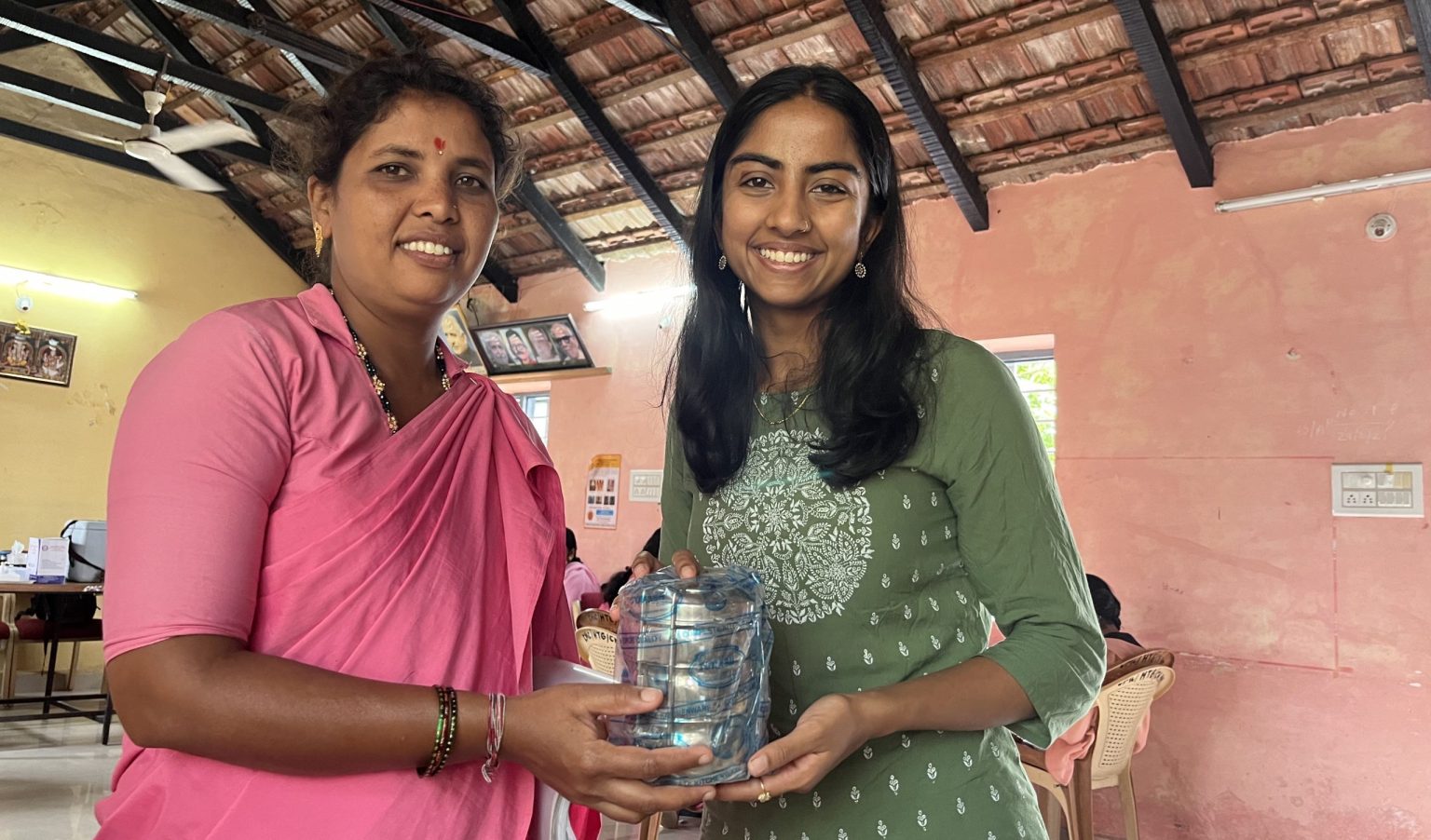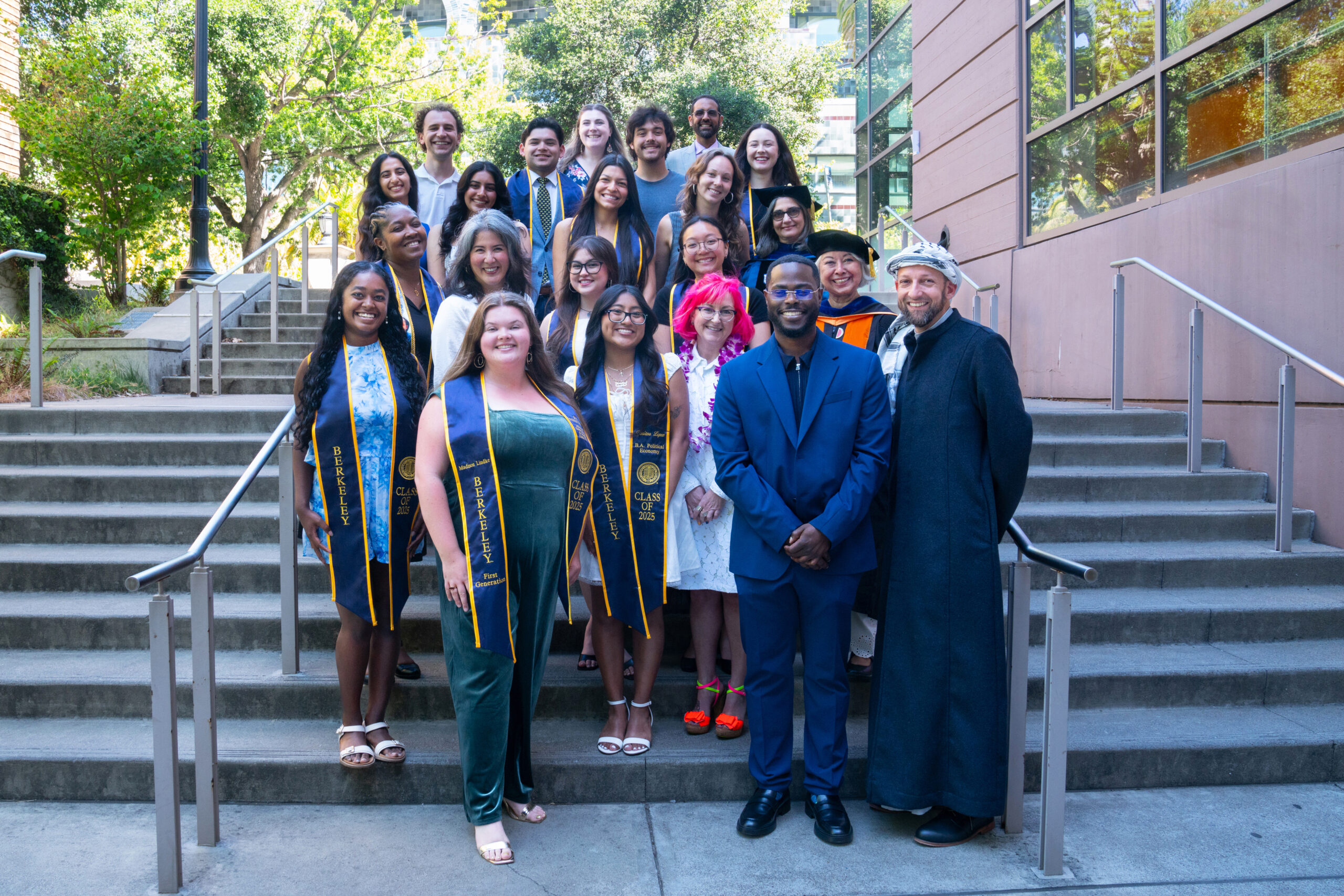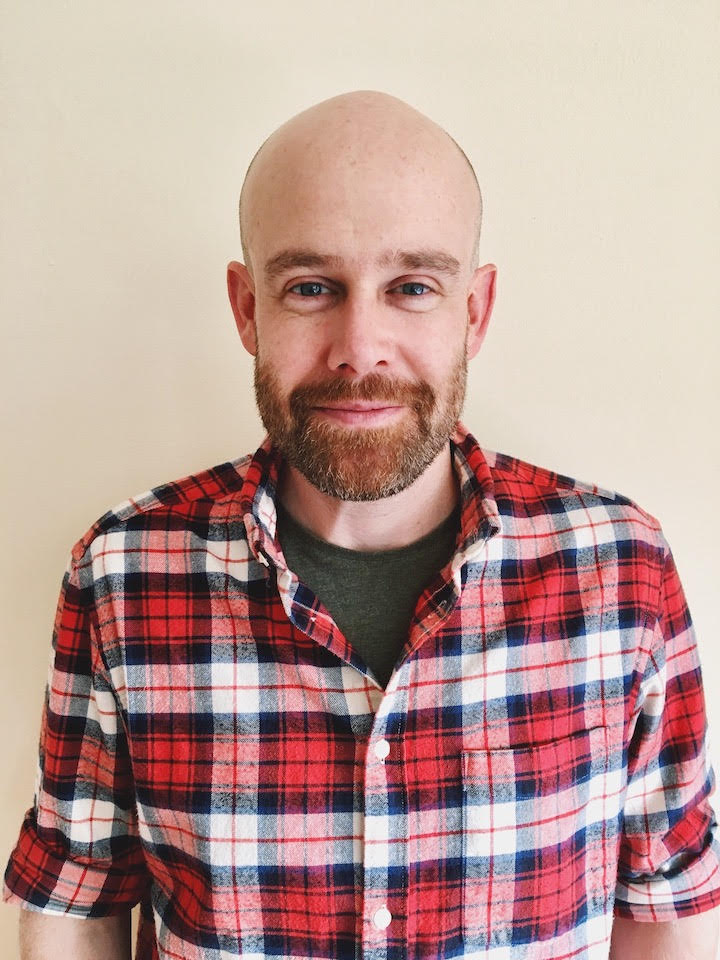The Global Poverty and Practice minor was the reason Grace Elam ended up at Berkeley in the first place. The university was “way too close to home” for the San Franciscan, and she felt skeptical that Berkeley’s reputation for real-world change had continued to live up to the 1960s’ Free Speech Movement. After receiving an admissions letter, she snuck over to Cal Day to scope things out. She only remembers attending one event: a GPP alumni panel that “shared their experiences building a schoolhouse in Ghana and working in carceral reform in California.” She knew where she wanted to go for college.
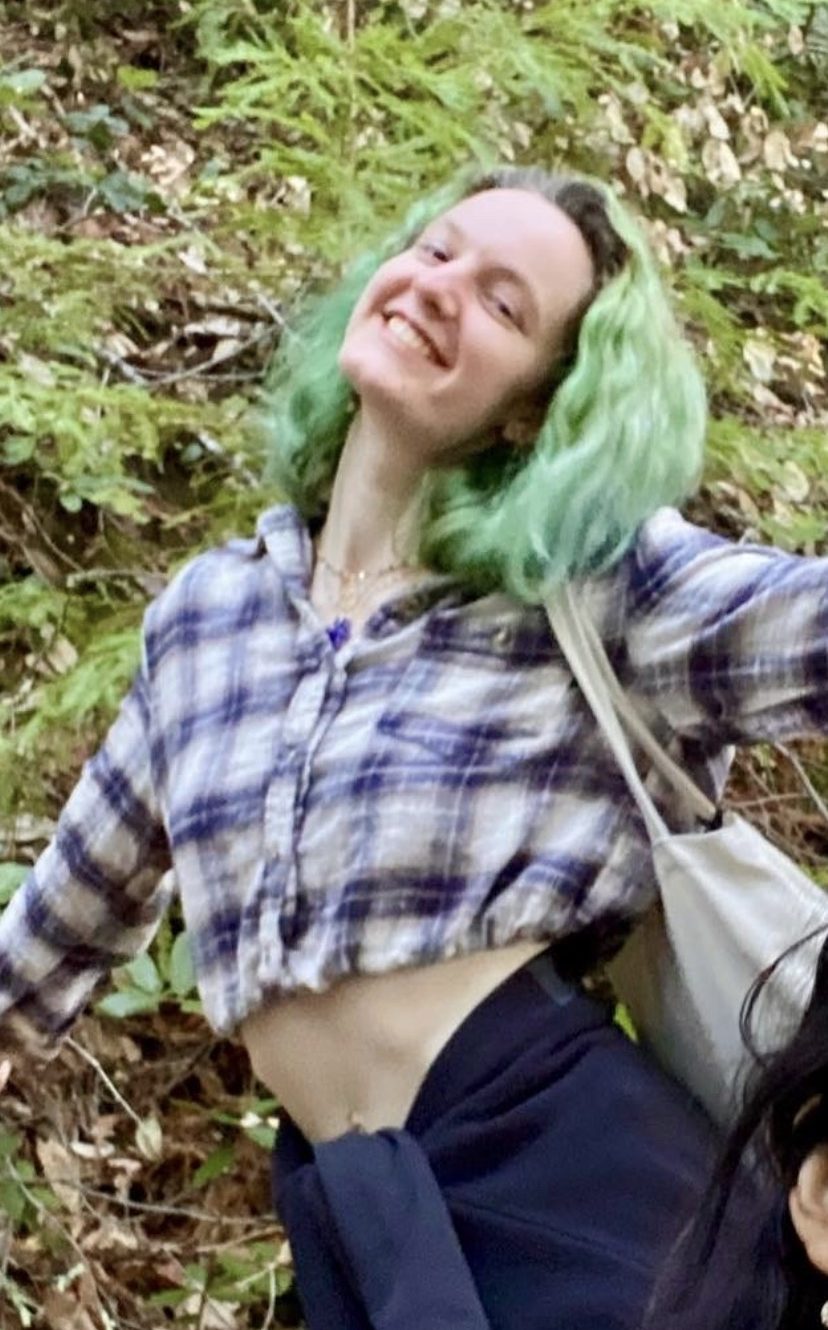
The fourth-year, who’s majoring in rhetoric and minoring in both GPP and public policy, has spent the past two summers working full-time in the legal office of the U.S. Environmental Protection Agency’s Pacific Southwest region, and continues working there part time. Much of her work focuses on the EPA’s engagement with other governments, including those of Navajo Nation, Guam, and California, as well as tracking civil rights compliance of grant recipients, processing the public’s requests for agency records, tracking citizens’ environmental lawsuits, researching the history and cultural practices of Native nations, and looking into the community impacts of polluters.
Through “tricks of timing and my own desire to make the most of GPP’s foundational praxis,” the EPA job became her GPP practice experience, the hands-on component of the minor where students apply in the field what they learn in the classroom. Elam is also one of seven GPP peer advisors who use the experience they’ve gained in completing most of the minor to counsel their newer peers.
“I found that GPP was the most welcoming community I had come across at Cal,” said fellow peer advisor Samyukta Shrivatsa. “From the staff to the faculty and students, I owed so many of my best experiences to the encouragement and warmth extended by them. Finding meaning in one’s college experience can be a lonely journey, and I wanted to pass on the support I received to other similarly lost students!”
“Expanding how I look at the world”
Mahima Sinha’s passion lies in increasing access to healthcare in communities. It drove the fourth-year, pre-medical track public health student to take GPP 115, “Challenges and Hopes,” in the first place. What stuck out to her was how the program could be tailored to students’ personal experiences, combined theoretical frameworks with real-world action, and promoted reflection on learnings and experiences. “I learned to think critically about poverty and inequality in a way that I had never thought of before,” Sinha said.
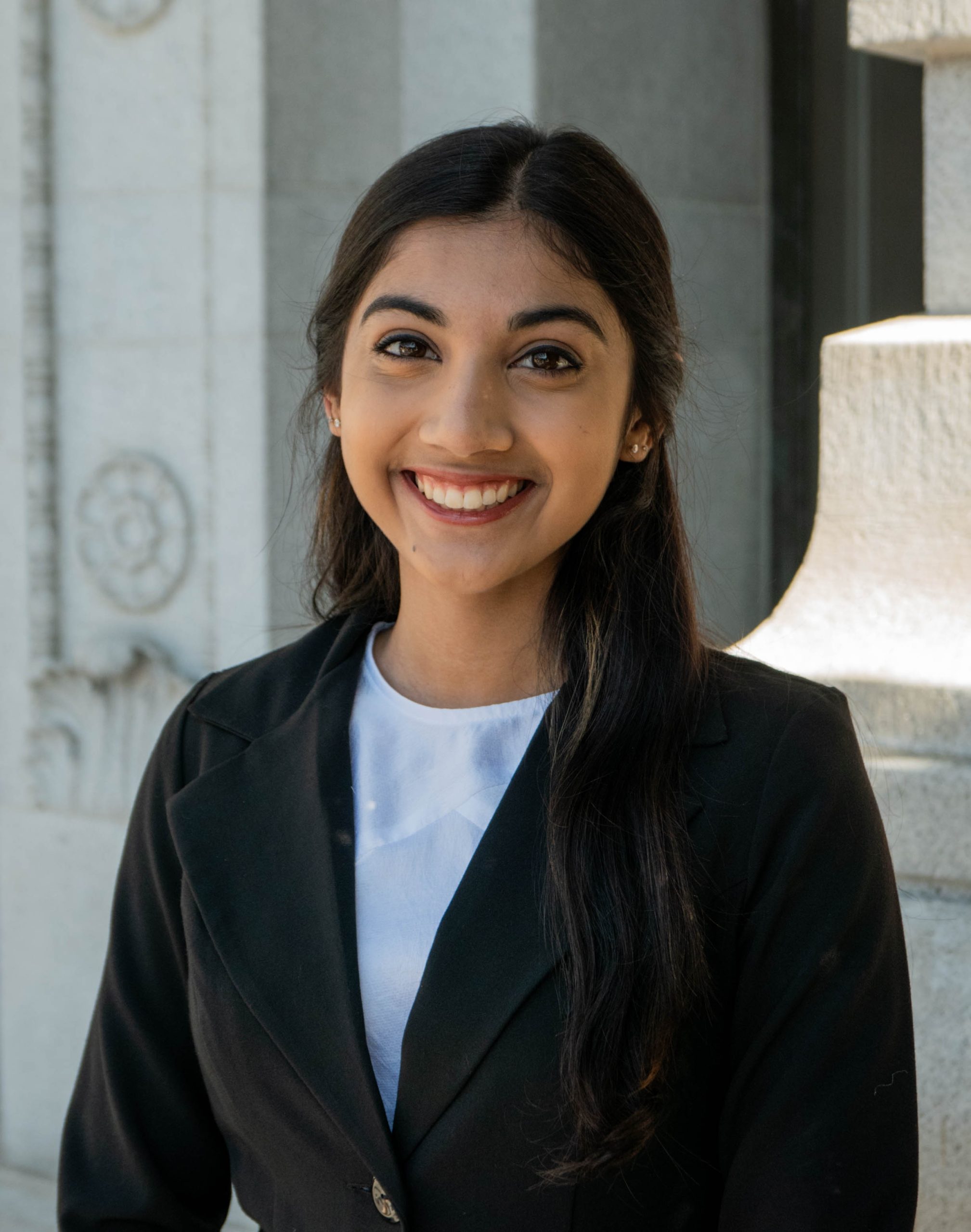
But it was the program’s community that also drew her in. “I loved how supportive everyone was of each other and how inclusive it felt.”
Sinha has stayed close to home with her practice experience, which can take students around the world. She continues to work remotely with Transitions Clinic Network, a San Francisco–based nonprofit providing healthcare services to those transitioning out of incarceration, doing data analysis of patient demographics, designing a manual for the TCN’s healthcare hotline, writing articles for San Quentin Prison’s social justice–oriented news site, and interviewing TCN’s community health workers — folks who have been incarcerated whom TCN hires to “create a supportive healthcare experience for patients and support their autonomy,” Sinha says.
“I have been able to learn so much about the effects of mass incarceration and how that impacts health specifically,” she said. “It has been challenging because I have never worked with the reentry population before and I am learning a lot as I go, such as the proper language to use, the harmful stigmas associated with incarceration, and the increasing need for reentry services in the United States.”
Expanding her perspective has been a key element of her overall GPP experience, which is open to all majors, allowing for a wide array of outlooks and frames of reference.
“This has really expanded how I look at the world and analyze what I see in the news,” Sinha says. “The minor has also offered me a lot of insight into how I can incorporate these frameworks into my future career, regardless of what I end up doing.”
“A lot of ownership for this project”
Also a fourth year, Samhita Bhat studies public health and molecular and cell biology.
Over this past summer, she worked at Public Health Research Institute of India (PHRII), a nonprofit in the southern city of Mysore that researches women’s reproductive health, runs education and screening programs, and offers health services. As her practice experience, Bhat evaluated the impact of PHRII’s cervical cancer screening program through interviews with local community health workers, who were often overburdened managing the health of thousands of rural community members. She brought with her fluency in Kannada and, “as the daughter of immigrants from the state of Karnataka, a lot of personal knowledge and deep-rooted connection to the poverty that community members experience there.”
Her internship work resulted in a research abstract she presented at a conference and will be published soon in Annals of Epidemiology. “I felt a lot of ownership for this project as I was able to conduct interviews on my own,” Bhat said.
What’s helped cement her interest in continuing to work with healthcare-oriented grassroots organizations, she says, has been a curriculum that’s allowed her to better confront her own privilege and recognizing “the harm that my own actions may have in conducting poverty alleviation and how to mitigate that.”
“GPP has been a really special and unique part of my Berkeley experience, and I felt like I found a really strong community within my GPP classes and cohort,” Bhat said. Being a peer advisor, she added, allows her to transmit that experience to others while connecting with peers who have similar interests to hers. “I love hearing about the various passions and experiences that such a diverse group of students have within the minor.”
“Challenging these systems in my professional and personal life”
“I was very aware of the privilege that an education at Cal gives me,” recalled Samyukta Shrivatsa, a senior studying environmental engineering science, “and was interested in understanding the education system I grew up with, the role education has to play in social and economic mobility, and how we can better serve students who go through the system.”
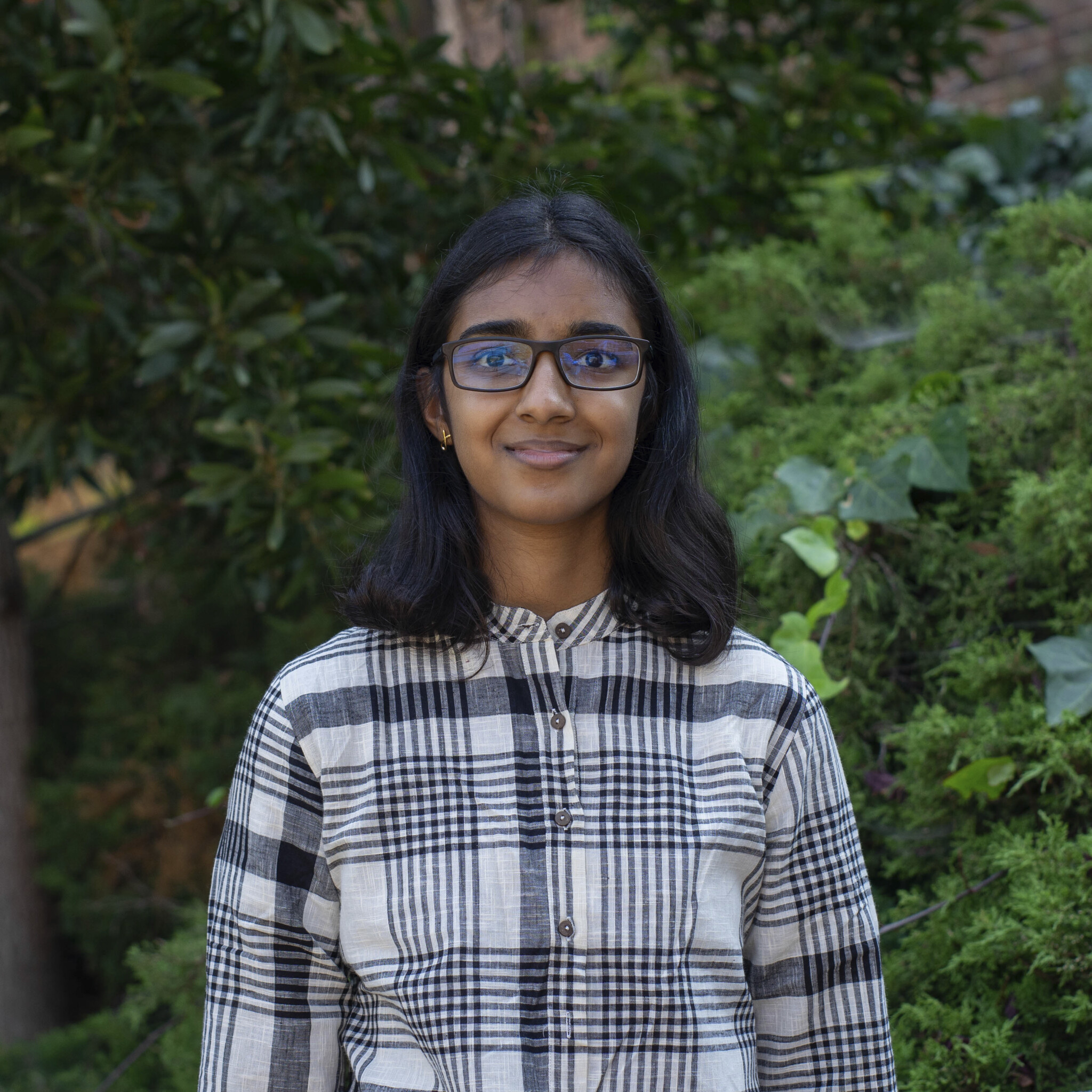
Shrivatsa came to the US from Bangalore. “Navigating college as an autistic student during COVID-19 was very challenging.” But it brought with it an awareness “of the complexities of privilege and power omnipresent in my life” and the desire to find a way to leave the world better off than how she’s found it. GPP 115 convinced her that “engaging in meaningful activities of solidarity” was where she wanted to be.
To these ends, she returned to Bangalore this past summer with Parikrma Humanity Foundation, which provides a holistic education to students from marginalized socioeconomic backgrounds. She had been intrigued by the way the school supported its students emotionally, medically, and financially since meeting some of those students in high school.
“I realized very quickly that my role as a temporary volunteer was miniscule, and that I had to think carefully about what kind of work I could do that would be most helpful to teachers with decades of experience,” she said. Shrivatsa observed the love with which the teachers approached their students’ difficulties. Her own days varied widely: playing football with students one day, talking K-dramas another day, introducing them to parliamentary debate yet another day, and all the while hearing out their backstories, hopes, and dreams.
For Shrivatsa, the practice experience and her classes have been a source not only of extensive knowledge, a realization of how much she doesn’t know, and how to be critical of “the systems and rhetoric surrounding issues of poverty and development,” but has given her the tools to “challenge these systems in my professional and personal life.”
“Celebrating the importance of their work and passion”
“I’ve landed in a front-row seat for US federal environmental governance, which is fascinating to watch, and extremely complex to be a part of,” said Elam of her EPA job. Some of the public’s preconceptions about the federal government, she found, aren’t far off, like dense bureaucracy and “high-level political indifference” slowing the pace of the government’s justice work. But that front-row seat also hit home that the EPA and its sibling agencies are made up of people at every level, who do good work and bad, “occupying different roles and having different impacts, and most importantly, responding to different pressures as ordained by their roles.”
In her second year, in an unrelated campus organization, she got to know a peer advisor, who became a mentor not only in GPP but for her whole Berkeley experience and work in social change. “I missed her when she graduated, and thought of her immediately when last spring I received an email from the GPP minor suggesting I apply to be a peer advisor,” she said. “Partly in her honor, and partly because I was flattered by the anonymous nomination, I did so and applied, and now I’m here!”
During advising sessions, Elam continues to draw inspiration from the peers with “their passion, drive, and ideas for their own GPP trajectories.”
“I believe in those students, and I want to celebrate the importance of their work and passion, and to set them up as well as I can to have their desired impact on the world and their issue of choice,” she added. “I’ve found that I leave every advising appointment I have with a smile.”

